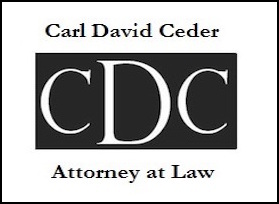You hear a lot that alleged criminals are innocent until proven guilty beyond a reasonable doubt. This is a principle that sets the United States apart from other countries where alleged offenders are guilty until proven innocent. It's an important legal concept, one that is a founding bedrock of our criminal justice system. Without it, many innocent people would be behind bars right now, which would effectively take the "fair and just" out of the criminal justice system.
But what does reasonable doubt mean exactly? If you are innocent until proven guilty beyond a reasonable doubt, then understanding what this means can help you better understand the stakes in any given criminal trial.
What is Reasonable Doubt?
Reasonable doubt is the standard of proof the prosecutor must provide to secure a guilty verdict in a criminal case. The Fifth Amendment to the U.S. Constitution requires its criminal proceedings. In the U.S. Supreme Court case, In Re Winship, 397 U.S. 358, 90 S. Ct. 1068, 25 L. Ed. 2d 368 (1970), the Court ruled that the highest standard of proof is grounded on
a fundamental value determination of our society that it is far worse to convict an innocent man than to let a guilty man go free.
"Beyond a reasonable doubt" means that the prosecutor must present evidence and arguments in a clear and convincing manner so that any rational person (including the judge and jury) believes that the defendant is guilty. On the other hand, if a rational person has reasonable doubt that a person committed the crime, the alleged offender cannot be convicted of that crime. Reasonable doubt is established when all the elements of a crime are satisfied.
Reasonable doubt may be better understood when compared to a preponderance of the evidence. A preponderance of the evidence is a lower standard, typically meaning the evidence suggests more than it doesn't that the alleged offender is guilty.
For example, in a DWI criminal case in Dallas or Fort Worth, Texas, the prosecutor can create reasonable doubt when it proves:
- the alleged DWI offender was illegally intoxicated
- while operating a vehicle
- in a public place.
These elements on the surface may not seem so difficult to prove beyond a reasonable doubt, but they can be. For example, to be illegally intoxicated, one of the following must exist:
- your faculties were impaired; or
- your blood or breath alcohol content was .08% or more.
A police officer pulls you over because you swerved out of your lane. The officer suspects you are illegally intoxicated because you are slow to respond to his questions. He asks you to perform a field sobriety test. You do, and you fail. But when you provide a breath sample via a preliminary breath test, you pass. The officer uses the field sobriety test results to arrest you. At the police station, a breathalyzer is used and you fail the test, providing a breath sample that shows you breath alcohol content is .09%.
By a preponderance of the evidence, it may seem based on these facts that you were indeed illegally intoxicated while operating a vehicle on a public road. But remember, in a criminal case, there must be no doubt. In the above scenario – there's plenty of room for doubt. Just consider:
- The driver could have been nervous to get a traffic ticket and, thus, was not in his "right" mind and answering slowly.
- The driver could have failed the field sobriety test because of health, medical, or physical condition (among other reasons).
- The driver's blood alcohol content was not at or above the illegal limit at the time he was pulled over, but as time passes, the alcohol metabolizes, meaning the BAC could change. So, you may not have been illegally intoxicated at the time of the traffic stop, but you became illegally intoxicated after time passed and you were tested again.
- The Intoxilyzer used to test your breath sample at the police station had not been calibrated and maintained properly, rendering inaccurate results.
The above are just some examples of how alleged evidence in a DWI case may not meet the standard required to convict a person. If you have been charged with a DWI or another crime, make sure to hire an experienced, skilled criminal defense attorney in the Dallas-Forth Worth area. It's your best chance to create reasonable doubt.


Comments
There are no comments for this post. Be the first and Add your Comment below.
Leave a Comment